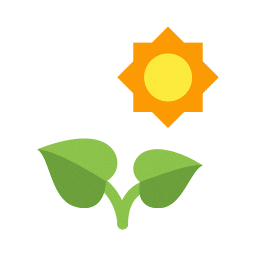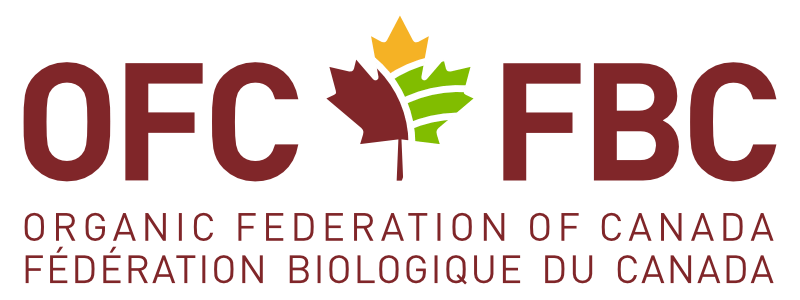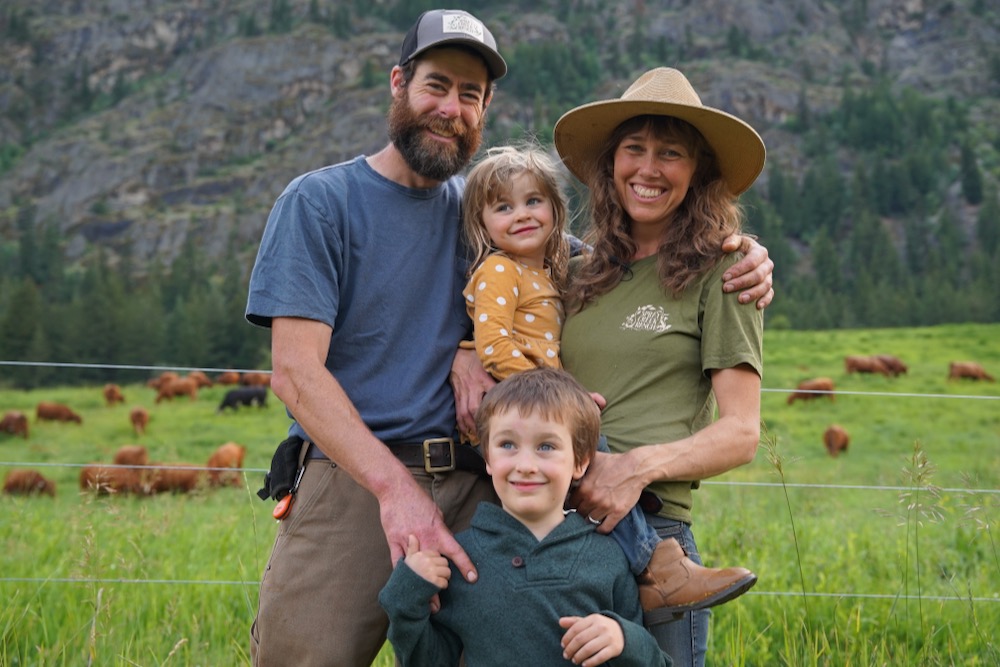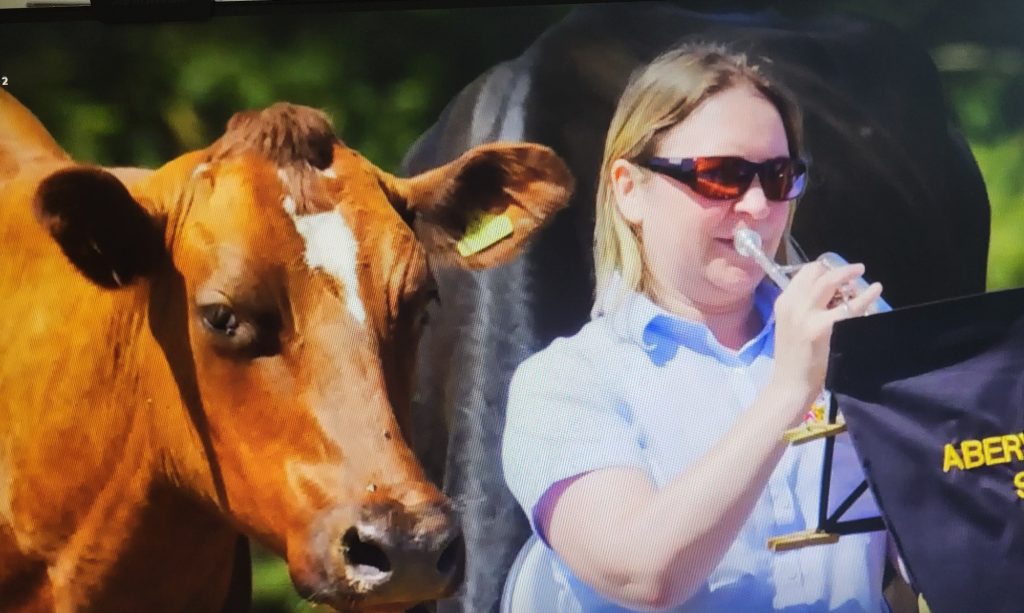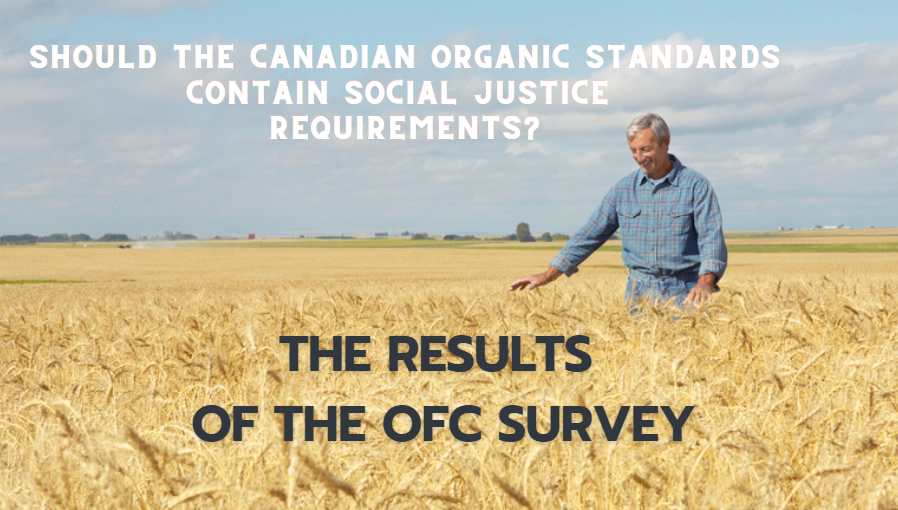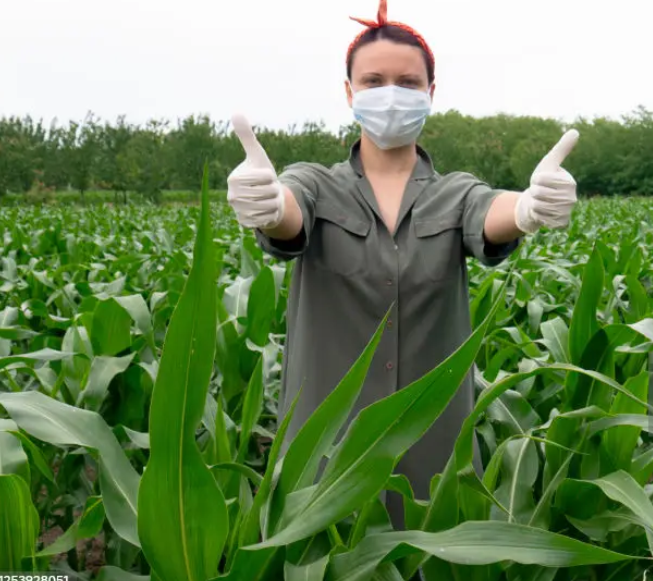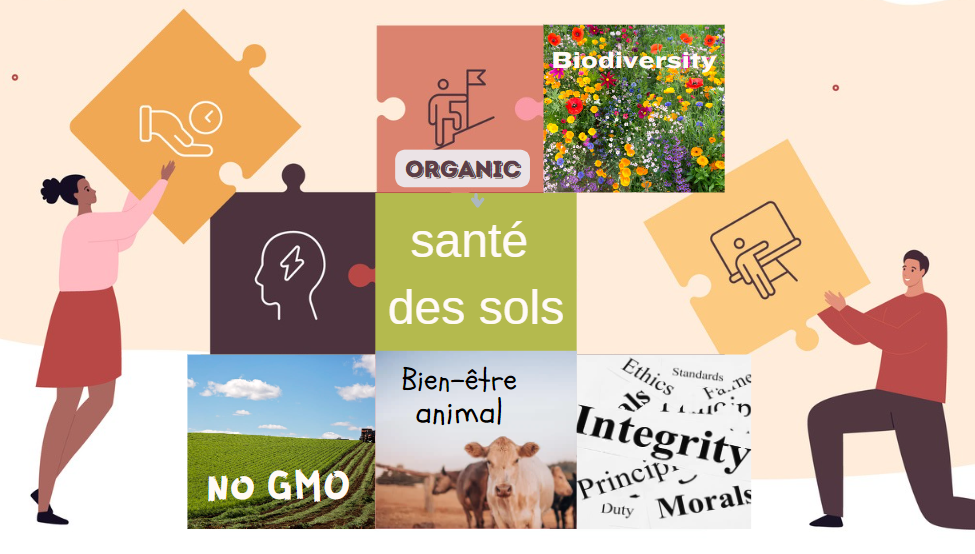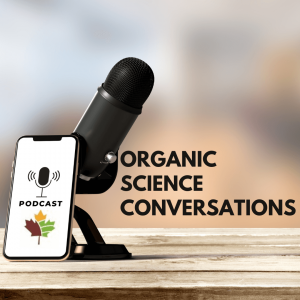Season’s Greetings from the Organic Federation of Canada!

The past year has brought many challenges to the organic sector. From an ongoing pandemic, funding challenges, changing GMO labelling requirements, rising food costs and inflation, 2022 has been a year to tighten the belt in many ways. Yet the sector has come together, stronger than ever.
The creation of the Canadian Organic Alliance has brought together the Canadian Organic Growers (COG), the Organic Federation of Canada (OFC), and the Canadian Organic Trade Association (COTA) to act as a unified voice for the sector. Canada’s organic trade continues to grow, and organic research in Canada continues to strengthen the resilience of organic production in the face of a changing climate.
With a New Year comes new opportunities. OFC and all of our members will continue to advocate for a more sustainable future and look forward to seeing organics grow in the year ahead.
We wrap up the year highlighting some of our favorite articles from 2022, as well as a feature on some of organic research from the Organic Science Cluster 3 activities.
We hope you enjoy your reading!
In Case You Missed It, The Best of 2022...
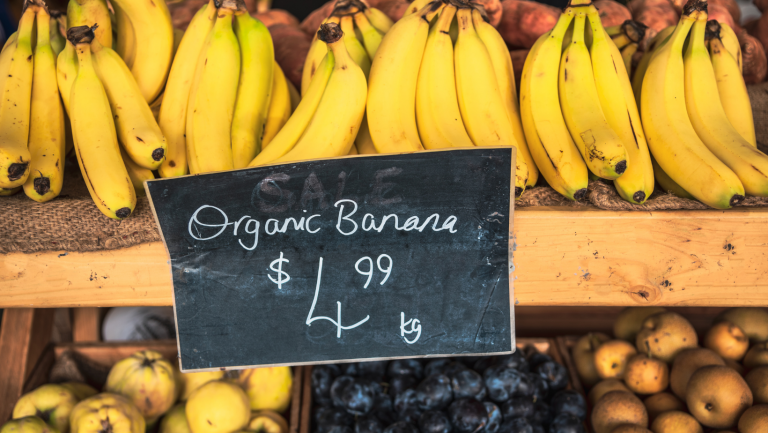
The Journey of an Organic Banana
The organic sector has been grappling with the announcement from the CFIA and Health Canada that they plan to overhaul the regulatory guidance that monitors the release of genetically engineered (GE) seed and food since Spring 2021.
To understand how these changes may impact organic farmers in the field, we spoke with Allison Squires, from Upland Organics, a family-run mixed cattle and certified organic grain farm in Saskatchewan.
Read Just Label It. The Impact Of The Proposed CFIA Changes To GE Regulations On Organic Farmers

Unidentified Gene Editing: A threat to organic farming
The organic sector has been grappling with the announcement from the CFIA and Health Canada that they plan to overhaul the regulatory guidance that monitors the release of genetically engineered (GE) seed and food since Spring 2021.
To understand how these changes may impact organic farmers in the field, we spoke with Allison Squires, from Upland Organics, a family-run mixed cattle and certified organic grain farm in Saskatchewan.
Read Just Label It. The Impact Of The Proposed CFIA Changes To GE Regulations On Organic Farmers
The Canadian Organic Sector Needs Support
In the video “Cross Canada Organic Checkup”, Canadian organic farmers talk about their green practices and call for support from the Canadian government.

The OFC marked its 15th anniversary with a series of articles describing the issues, challenges and motivations of OFC and its member organization.
Organic Research - Closing One Science Cluster and Starting Another

An AgriScience Cluster is a cluster of different research activities related to one specific agriculture commodity. It helps gather all of the researchers involved in improving the production of each commodity under the Canadian climate: this amalgamation of talent and academic knowledge boosts the science of agriculture and benefits all Canadian farmers.
The first AgriScience Cluster program was launched by Agriculture and Agri-Food Canada (AAFC) in 2009. There are currently 19 different AgriScience Clusters which focus on different agricultural commodities, such as the Dairy Cluster, Poultry Cluster, Horticulture Cluster, or the Canola Cluster, with the organic sector getting its own Cluster, which are now entering the last year of the AgriScience Cluster 3 (2018-2023).
We start 2023 with an application for the 4th Organic Science Cluster! (2023-2028)
Learn more about the behind the scenes of creating an Organic Science Cluster
Read about some of our success stories from previous Organic Science Clusters
The painstaking preparations for OSC4
All activities integrated into the OSC4 project
are peer-reviewed
Each proposed Organic Science Cluster research activity must go through a peer review process before it can be included in an Organic Science Cluster proposal. For each research activity, two reviews are needed, plus a third reviewer should there be a greater than a ten percent different between the first two ratings.
To avoid conflict of interest scientists must have had at least three years since there have been any collaborations.
AAFC scientists are not allowed to participate in the review process for projects submitted under AAFC programs.
April Stainsby (MSc, AAg), a Project Coordinator for the Organic Science Cluster, managed the OSC4 peer review process. Stainsby notes that “358 invitations to review were sent out for 31 research proposals, with an average of 11 invites per proposal. 68 positive responses were received (including the necessary 2 reviewers per proposal plus a handful of third reviewers).”
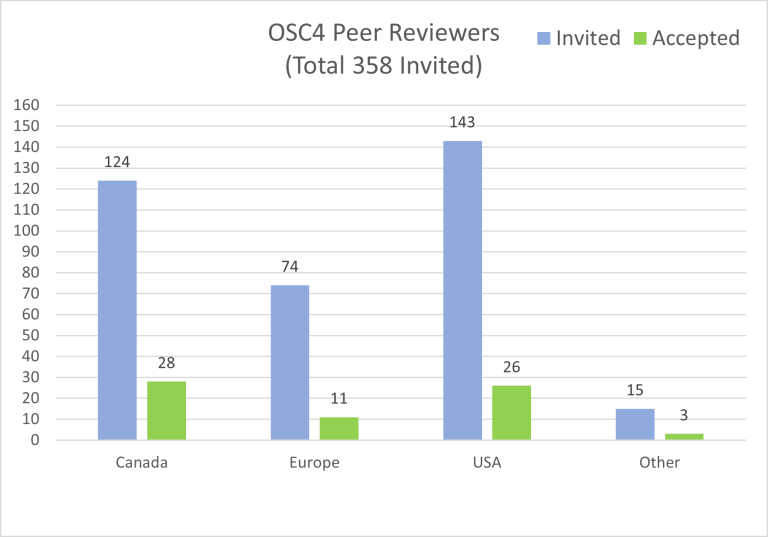
Finding researchers to conduct peer reviews is often a challenge, with most citing that they were too busy, on holidays, or in the middle of their own research field-work. 124 requests were sent to researchers in Canada, 143 to researchers in the US, 74 to Europe, and small numbers to researchers in Australia, Brazil, Chile, China, Grenada, Israel, Mexico, and New Zealand. Of the researchers who agreed to complete a review, 28 were from Canada, 26 from the US, 11 from Europe, and one each from Australia, Brazil, and Israel.
Looking Ahead to 2023

The 2025 review of the Canadian Organic Standards
is to be launched in 2023!
However, the search for funding remains an important issue.
Stay tuned!

Organic producers must be able to identify
genetically modified seeds and feeds!
Reducing the use of pesticides
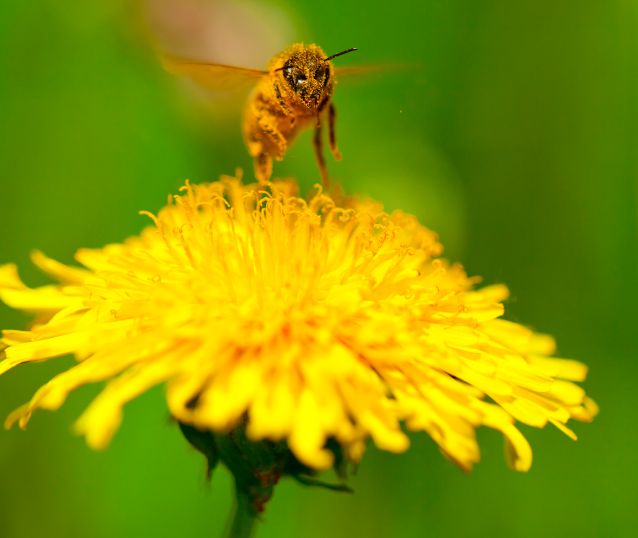
Even though AAFC prefers to optimize rather than reduce their use.
On the sidelines of COP15, Marie-Claude Bibeau, Canada’s Minister of Agriculture and Agri-Food, commented on the global goals of reducing pesticides by at least half or reducing them by at least two-thirds by 2030.
“I think we need to do better, but we are not in the business of reducing quantities, but more in the business of optimizing use. […] You have to use the right product, in the right place, at the right time, in the right quantity. And so the Canadian approach is more about risk analysis, but also about research and innovation,” she added.
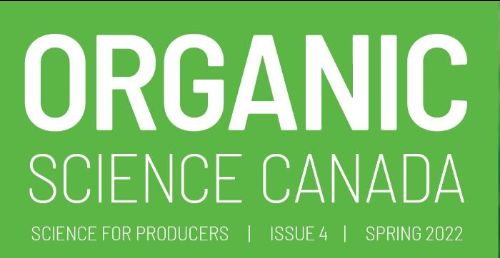
Organic Science Canada Issue 5 will be released in Spring of 2023.
This issue dives into the science behind analyzing impact for organic producers.
Join the discussion on the development of sustainable agriculture policy
Agriculture and Agri-Food Canada launched consultations to help guide the development of a Sustainable Agriculture Strategy (SAS). We look forward to hearing from producers, industry, non-government organizations, Indigenous communities, the public and more on how we can work together to improve environmental outcomes in the sector and achieve the vision of Canada as a world leader in sustainable agriculture and agri-food production.
As part of the consultation process, a discussion document is available for comment. Consultations run until March 31, 2023. Share your experiences, ideas, and advice on developing a Sustainable Agriculture Strategy. Please share your feedback online until March 31, 2023 via:

Registration for the 2023 Guelph Organic Conference is officially open!
The conference will feature a variety of interesting virtual sessions from January 23-27, and January 28-29 will bring a return to the much missed in-person workshops and free-to-the-public trade show at the University of Guelph.
Register for the conference before January 9, 2023 to enjoy Early Bird discount pricing.
Many other interesting conferences to add to your agenda:
ACORN Conference – https://acornorganic.org/conference/
Colloque Bio pour tous – https://cetab.bio/evenements/colloque-2023/
Advancing Organics – SaskOrganics – http://saskorganics.org/event/advancing-organics-conference-trade-show-annual-general-meeting/
2023 BC Organic Conference – https://organicbc.org/conference/
